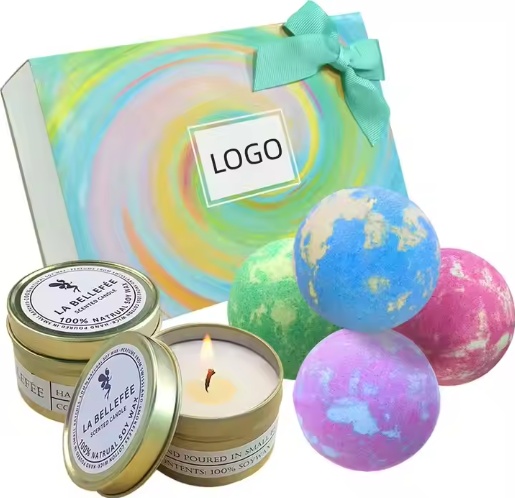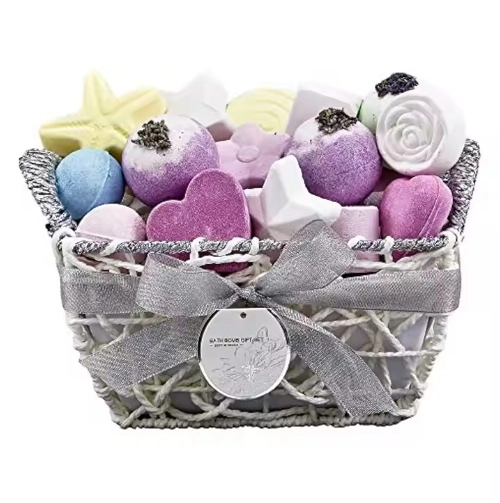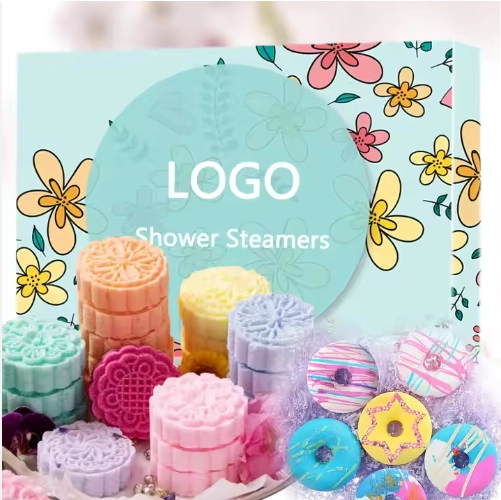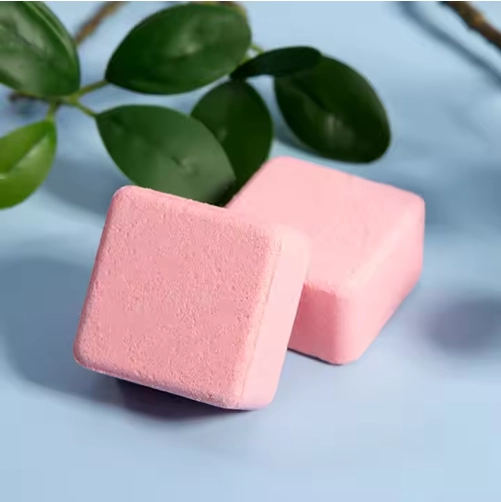What is a Bath Bomb?
A bath bomb or bath fizzy is a consumer product used during bathing. It was invented and patented in 1989 by Mo Constantine, co-founder of Lush Cosmetics. A bath bomb is a compacted mixture of wet and dry ingredients moulded into several shapes and then dried. Bath water effervesces at the surface of a bath bomb immersed within it, with attendant dispersion of such ingredients as essential oil, moisturizer, scent, or colourant.
Ingredients:
- Baking soda
- Citric acid
- Epsom salts
- Fragrance oils
- Colourants
- Surfactants
How Does A Bath Bomb Work?
The key ingredients in bath bombs are sodium bicarbonate and citric acid. When the mixture (usually in spherical form) is placed in warm water, the components dissolve, and the citric acid interacts with the sodium bicarbonate. The chemical reaction in the water causes the mixture to fizz, creating a bubbly, foamy, colourful texture to the water.
Are Bath Bombs Bad For Your Vagina?
There's good news: "Some women can use any bath bomb without issue," says Alyssa Dweck, M.D., ob-gyn and sexual and reproductive health expert for INTIMINA. But not everyone will be so lucky. "Many others are sensitive and will have increased risk of vaginal infection, urethral irritation, and UTI or vulvar skin irritation (vulvitis) due to the ingredients," she says.
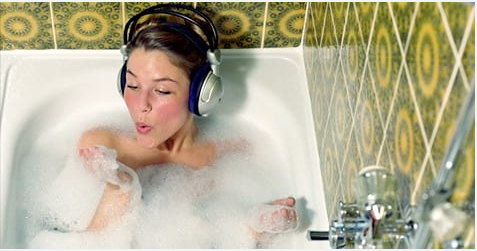
the vagina is a self-cleaning organ and maintains its own ecosystem. It's highly susceptible to disruption by external agents (think: chemicals, fragrances, even soaps) because they can easily disturb your vaginal flora and shift your body's natural pH, increasing your risk of things like bacterial vaginosis (an imbalance of bacteria in the vagina) and yeast infections (an overgrowth of naturally occurring yeast in the vagina). Because your vaginal ecosystem can so easily be thrown off, it's really important to pay attention to what you're using in this oh-so-sensitive area.
So, if you're already prone to irritation, yeast infections, UTIs, or bacterial vaginosis, it may be safer to avoid bath bombs altogether and take a look at what's inside your favourite one, says Dr Dweck. Here are some ingredients that Dr. Dweck says you might want to avoid:
- Heavy fragrances or dyes: These chemicals can lead to irritation and pH imbalances within the vagina. This can cause discomfort or even bacterial vaginosis. They often appear as "fragrance" or things like "Blue 2" or "Red 4" in ingredient lists.
- Talc: Talc has a possible link to ovarian cancer, although this idea is debated among medical professionals and researchers. Best to steer clear, just in case.
- Parabens and phthalates: Dr Dweck described these as endocrine disruptors, meaning they can interfere with hormonal functions. Many endocrine disruptors are also hazardous to the environment, so it's best to avoid them in any personal hygiene or beauty product.
- Glycerin: Glycerin, a common ingredient in beauty products, breaks down into sugar. While, as a humectant, it's great to seal in moisture for dry skin, glycerin near your vagina can lead to an increased risk of bacterial vaginosis or yeast infections because some bacteria and yeast feed off of sugar, and introducing it to the area can least to yeast overgrowth. (Note: Glycerin is also found in many OTC vaginal lubricants, so make sure you're checking the ingredient list on those bottles as well.)
- Glitter: It may also be a good idea to avoid bath bombs with glitter. Glitter is hard to clean off of anything (including skin) and may scratch the skin of your vagina. Ouch. (Sorry, I guess we all can't live out our fairy princess fantasies from childhood.)
It's important to note that brands claiming to be "clean" and "natural" still make products with these ingredients, so always check the ingredient list before making a purchase. When in doubt, go with a product with as few ingredients as possible, because then there will be fewer things to potentially cause a reaction.

